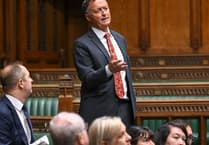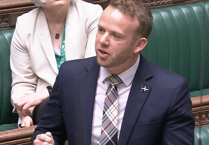In what felt like a relatively quiet recess week, there was much discussion around the UK’s fiscal policies.
As promised in my previous column on the matter, last week I wrote to the chancellor to express my support for the progressive aspects of our fiscal policy so far, while also highlighting areas where tweaks would better balance the needs of working people with economic stability.
I welcome the government’s willingness to show flexibility and, above all, that Labour is a government that listens.
Last week, the Prime Minister also called for greater honesty from the opposition around their financial plans.
Reform UK’s announcement of £80-billion of unfunded tax cuts is a perfect example of fantasy economics inspired by the Truss budget – policies that are attractive in isolation but collapse under scrutiny, lacking any credible strategy on how such measures would be paid for. The inevitable consequence of such reckless pledges would be higher mortgages, higher rents, and higher household bills, hitting working people hardest.
A full reversal of the Winter Fuel Policy would cost £1.5-billion annually – a significant burden on the Exchequer. Whilst most would agree that more pensioners should be eligible, few would agree that the benefits should be unconditional. I’m pleased that the government has already nearly exhausted the savings from the Winter fuel change by getting the payment and additional Pension Credit to those most in need. Raising the personal allowance to £20,000, along with the related tax threshold changes, would cost a whopping £60-billion a year. So whilst we would all love to support an extension of the allowance, we need to be able to say honestly exactly how we’d pay for it.
Our main opposition party will, inevitably, begin to come under proper scrutiny for the first time. I for one, very much welcomed Reform UK’s attempts to run Cornwall Council with less than the majority of councillors needed to actually win votes and get anything done. We are used to doing politics in a multipartisan way in Cornwall and, it would have been interesting to see how effective they could be in a situation where they were reliant on the chaotic goodwill of individual councillors to supply votes and enable them to do anything effectively.
Now that they’ve more tangible power scattered across the country, we must ask the questions, are their promises built on solid economics, or will they jeopardise the fiscal stability we’ve fought so hard to secure?
So, rather than having a dig or taking potshots, let’s have the debate and ask the genuine question – how do we think these promises should be paid for? I’d genuinely be keen to hear from you as constituents where you think the fiscal give and take should be.
I’ve been clear with the chancellor that, if economic clouds darken further, it should be those with the broadest shoulders that bear the greatest burden. There are many colleagues on the Labour benches calling for us to further explore wealth taxes, which are very popular, but there needs to be more clarity around what they might entail.
I still believe that running a stable economy as we have done, with interest rates coming down, wages on the rise and a government that listens and tweaks where needed, is the best way to provide the growth which unlocks the additional revenue needed to rebuild our public services. We must ensure too, however, that greater equality comes from “predistribution” rather than redistribution, allowing working people to take home more of the money they earn.





Comments
This article has no comments yet. Be the first to leave a comment.